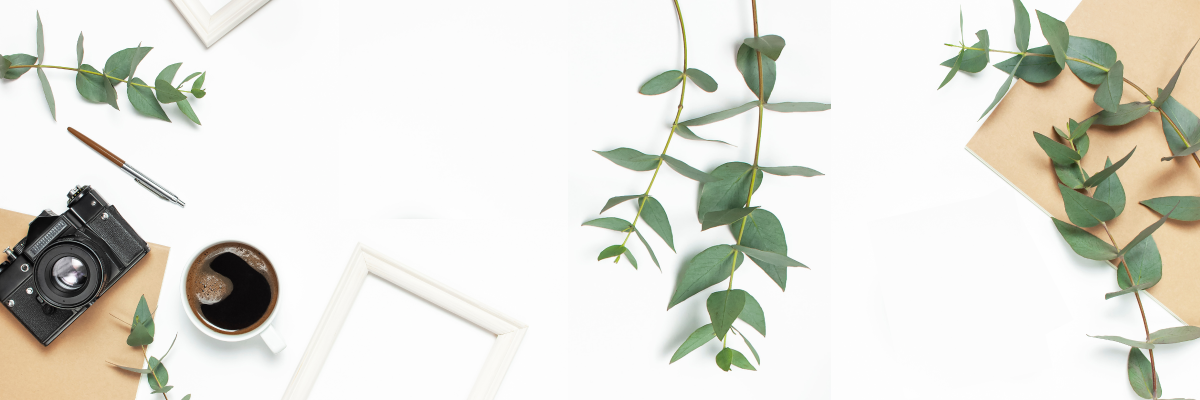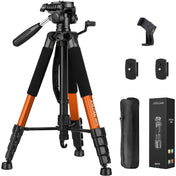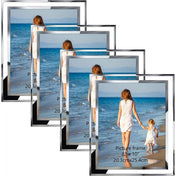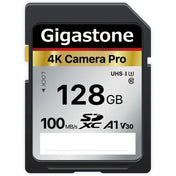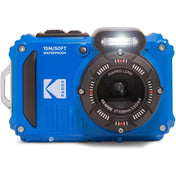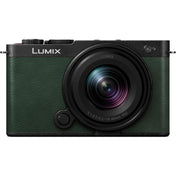Overview
Starting photography can be overwhelming, but having the right equipment is essential. This guide covers key gear for beginners, including cameras (DSLR vs. mirrorless), essential lenses (standard zoom and prime), must-have accessories (tripod, camera bag, batteries), lighting tools (external flash, reflectors), and editing software (Adobe Lightroom, Photopea). Additionally, it emphasizes the importance of practice, online courses, community engagement, and exploring different styles to enhance your skills and find your unique voice in photography.
Beginning your journey into photography can be both exciting and overwhelming. With a myriad of options available, knowing what equipment to start with is crucial for maximizing your creative potential. In this guide, we’ll explore the essential photo equipment that every beginner should consider, ensuring you have the right tools in your kit. Whether you're capturing stunning landscapes, portraits, or everyday moments, having the right gear will make a world of difference.
Understanding the Basics of Photography Equipment
Before diving into specific gear, it’s important to understand the types of photography equipment available and what you might need. At a basic level, photography gear can be split into three main categories: cameras, lenses, and accessories. Each of these plays a vital role in your photography journey.
Cameras: Picking the Right One
Your camera is the heart of your photography equipment. When choosing a camera, there are several factors to consider:
DSLR vs. Mirrorless
DSLR cameras have been popular for years and offer optical viewfinders and versatile lens options. Conversely, mirrorless cameras are gaining traction due to their lightweight design and advanced technology. Both types have their benefits and drawbacks:
- DSLR: Great battery life; vast selection of lenses; robust body.
- Mirrorless: Compact design; faster shooting speeds; quieter operation.
Ultimately, your choice depends on your personal preferences and photography style.
Point-and-Shoot Cameras
If you're after simplicity and ease of use, point-and-shoot cameras are a fantastic option for beginners. They are portable, have automatic settings, and are perfect for casual shooting. Many modern point-and-shoot cameras also come equipped with advanced features such as Wi-Fi connectivity and image stabilization.
Essential Lenses for Every Beginner
Lenses significantly impact the quality of your photographs and the styles you can achieve. Here are a few essential lenses beginners should consider:
Standard Zoom Lens
A standard zoom lens, typically ranging from 18mm to 55mm, is a versatile option for capturing a variety of scenes, from landscapes to portraits. This lens is perfect for beginners who want to experiment with different types of photography without investing heavily in multiple lenses.
Prime Lens
Prime lenses, like the classic 50mm, offer superior image quality with wider apertures, allowing for better low-light performance and beautiful background blur (bokeh). Investing in a prime lens can elevate your photography, adding creative capabilities to your kit.
Must-Have Accessories for Your Photography Kit
Accessories play a significant role in ensuring you capture high-quality photos. Here are some essential accessories to include in your photography gear:
Compact Photography Tripod
A compact photography tripod is one of the most important accessories for beginners. It not only stabilizes your camera but also allows you to shoot at various angles and exposures. Whether you're photographing landscapes or self-portraits, a tripod will enhance your image quality and provide that extra level of stability. When choosing a tripod, look for one that's lightweight yet sturdy, making it easy to transport to any location.
Camera Bag
A reliable camera bag is essential for protecting your gear. Choose a bag that fits your camera, lenses, and accessories comfortably. Look for padded compartments and weather-resistant materials to keep your equipment safe from the elements.
Extra Batteries and Memory Cards
No photographer wants to run out of battery or memory space while shooting. Always carry extra batteries and memory cards for uninterrupted sessions. Depending on your usage, consider investing in higher-capacity cards that can hold bulk photos and videos.
Lighting Equipment for Stunning Shots
Light is the cornerstone of photography, and understanding how to manipulate it can determine the quality of your work. Here are lighting tools that can help:
External Flash
An external flash can help illuminate your subjects, especially in low-light conditions. Unlike your camera's built-in flash, an external flash allows you to bounce light off walls or ceilings, providing a more natural look to your images.
Reflectors
Reflectors are simple yet effective tools for manipulating light. They come in various colors and sizes, helping to soften shadows and redirect light onto your subject. Using reflectors can enhance your shooting experience, especially for outdoor portrait photographers.
Editing Software: Post-Processing Magic
Once you've captured your photos, the next step is enhancing them through editing software. Here are a few popular options beginners can consider:
Adobe Lightroom
Lightroom is one of the most popular photo editing tools, favored for its ease of use and powerful functionality. It allows you to organize and edit your photos effortlessly while maintaining their quality. With Lightroom's presets, you can achieve a unique look to your images quickly.
Photopea
For those looking for a free alternative to Photoshop, Photopea is a web-based tool offering similar capabilities. It’s perfect for beginners who want to explore more advanced editing techniques without a financial commitment.
Building Your Photography Skills
While having the right equipment is vital, improving your skills and knowledge is equally important. Here are some tips to enhance your photography journey:
Take Online Courses
There are numerous online platforms that offer photography courses, from beginner to advanced levels. Investing time in structured learning can provide you with invaluable insights into camera functions, lighting, and composition techniques.
Join Photography Communities
Connecting with other photography enthusiasts can provide motivation and inspiration. Seek local clubs or join online forums where you can share your work, receive constructive feedback, and learn from experienced photographers. Engaging in community discussions can also lead to collaborative projects and new opportunities.
Practice Regularly
Like any other skill, practice is key in photography. Make it a habit to take your camera with you and shoot regularly. Experiment with different settings, lighting conditions, and compositions. The more you practice, the more comfortable you will become with your gear and developing your unique style.
Finding Your Photography Style
As you advance in your photography journey, you'll start to realize your preferences and style. Here are a few ways to discover your unique voice:
Analyze Your Work
Regularly review your photos to identify patterns in your work. What subjects do you gravitate towards? What lighting do you prefer? Understanding your tendencies will help you hone your skills and refine your style.
Explore Various Genres
Don't be afraid to explore different photography genres, such as portrait, street, landscapes, or wildlife. Each genre will teach you valuable lessons and techniques that you can apply to your primary style.
Ready, Set, Shoot!
Armed with this beginner equipment guide, you are well on your way to starting your photography journey. The equipment you choose, from your camera to your compact photography tripod, will play a significant role in your creative expression. Remember, photography is all about capturing moments and telling your story. So grab your gear, head out, and start clicking! The world of photography awaits you!
Linked Product

Kodak PhotoGear 62" Lightweight Tripod with Monopod
The Kodak PhotoGear 62" Lightweight Tripod with Monopod is designed for versatility and stability, making it suitable for a range of photography situations, from vlogging to self-portraits. Its lightweight and compact design allows for easy transport, while features like a built-in bubble level and rubber feet enhance stability on uneven surfaces. Additionally, the included Bluetooth remote and quick release plates streamline the process of capturing images, making it a practical choice for beginners.
View Product
